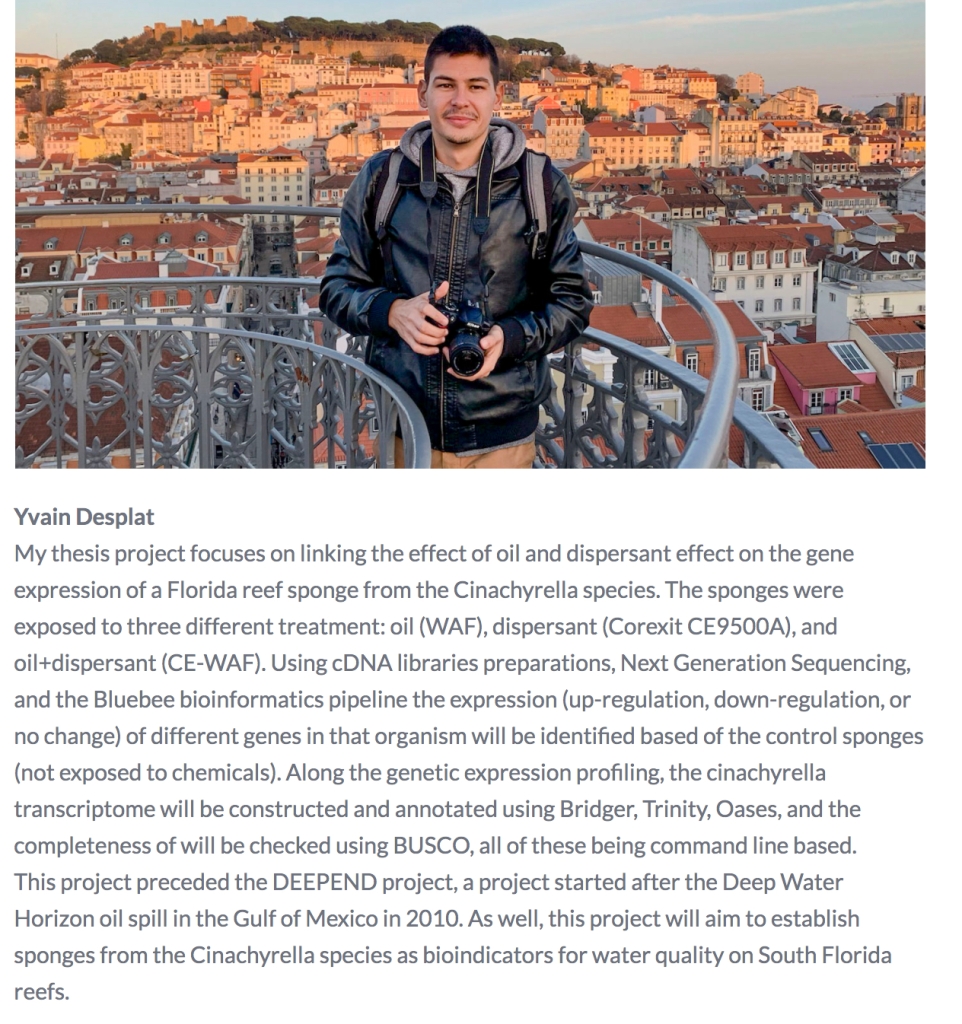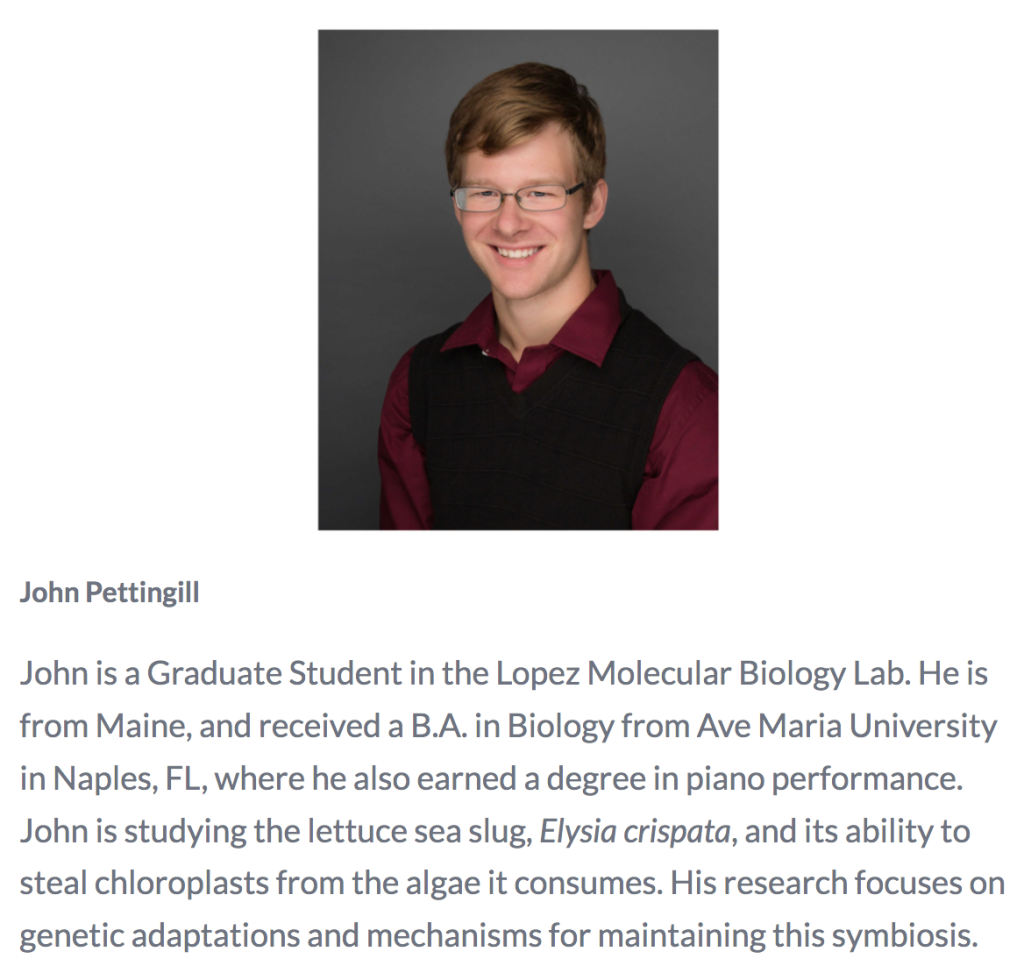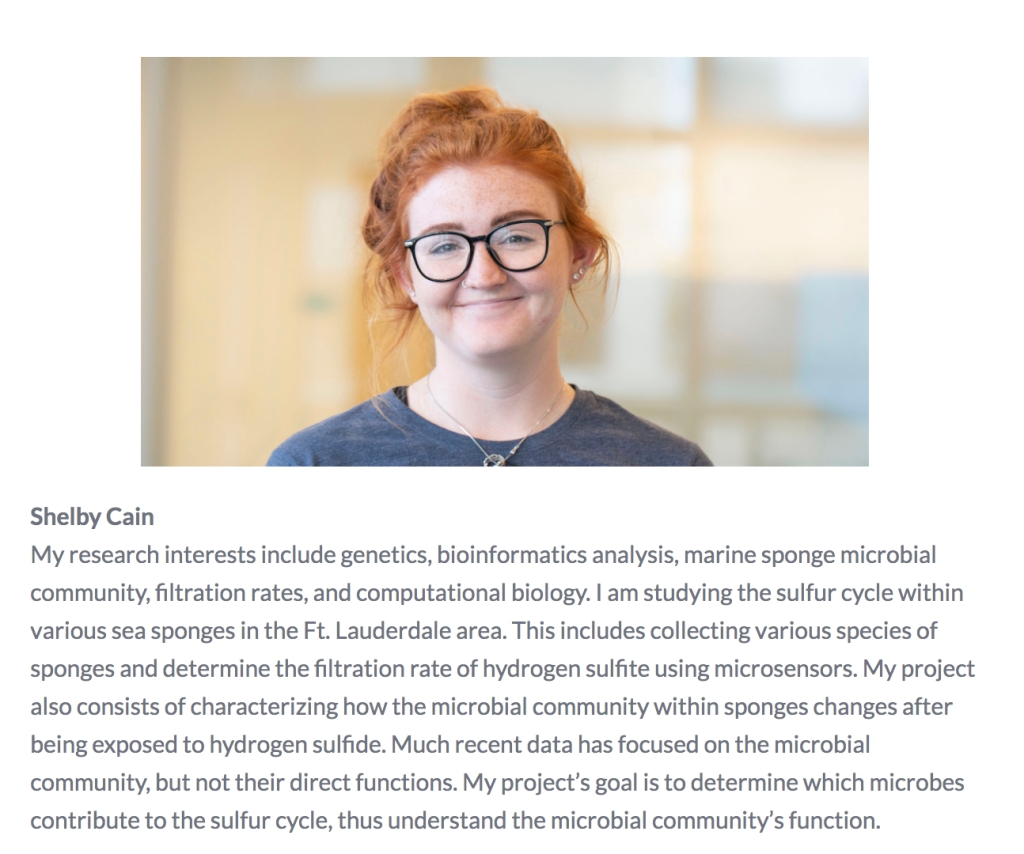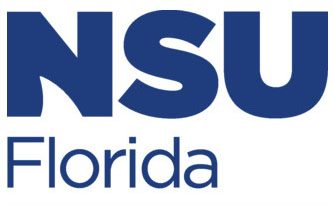Post Doctoral Researchers

Cole Easson was postdoctoral researcher at the Halmos College for Natural Sciences and Oceanography and a research scientist for the DEEPEND consortium. He earned his BS in Biology and Ph.D. in Environmental Toxicology from the University of Mississippi. His PhD research investigated stressors to coral reef organisms, particularly anthropogenic inputs of nutrients, marine diseases, and how these stressors affected interactions among reef organisms. He was a postdoctoral scholar at the University of Alabama at Birmingham focusing on microbial ecology and symbioses, with an emphasis on tropical marine sponges, as well as the development of online bioinformatics tools and workflows for processing large comparative datasets. For the DEEPEND project, Cole is in charge of characterizing the microbial community dynamics of the northwest Gulf of Mexico over space and time, and how these dynamics relate to broader oceanographic features. Microbial communities will be assessed using an lllumina MiSeq next-generation sequencer to capture the environmental microbiome of the Northwest Gulf of Mexico. Learn more…
Graduate Students








Chase Donnelly
Past: Bachelor of Science in Biology at University of Central Florida 2013.I am using next generation sequencing to look for anthropomorphic influences on the bacterial communities in South Florida waters. Samples are taken from urban and agricultural environments, chosen with the help of South Florida Water Management District and Broward County, as well a control environment in Grassy Waters Preserve in West Palm Beach Florida . Grassy Waters is a rain fed system that is highly regulated to be as close to Florida ‘s natural ecosystem as possible. The agricultural, urban, and control sites will be compared using 16srRNA sequencing technology. Water samples taken from all sites will be sequenced to find their bacterial communities. Statistical programs such as R will be used to find human impact on the communities. The goal of the project is to produce information that can be used to help protect our natural systems and find effects humans are having on these systems. Learn more…
Marissa Wickes
My thesis is primarily focused on the biodiversity and characterization of micro biomes of the floodwaters within Miami-Dade and Broward counties. As the flooding has become a bigger problem in Miami roads, the city has decided to install massive pumps that help alleviate the floodwater. These pumps are pumping the water directly back into the bays without any kind of treatment. My project is projected to find out what is being pumped back into the bays and at what concentration. We hope to better understand how these pumps are affecting the bays around the city. Learn more…
Lindsay Freed
Past: Bachelor of Science in Biological Sciences with a minor in Chemistry; University of Pittsburgh Project: The primary focus of my project is to characterize the microbiome of deep-sea anglerfish using high-throughput sequencing techniques. Specifically. I am focus ing on the symbiotic bacterial community found with in the bioluminescent lures (esca) of these fish. My goal is to determine whether t here is a significant difference in the esca microbiome of various anglerfish genera. I will also be collecting information on the skin and intestinal microbiomes of these f ish for further analyses. This project is an offshoot of the DEEPEND Consortium which focuses on increasing our understanding of deep pelagic ecosystem of the northern Gulf of Mexico. Learn more…
Jorie Skutas
Past: Bachelor of Marine Science and Bachelor of Biology from the University of Tampa. I am a Master’s of Science student working towards my degree in Marine Biology. My research focus is primarily on the presence of Salmonella in the Florida Everglades environment using Whole Genome Sequencing. Infection from Salmonella leads to the highest incidence of hospitalizations and deaths each year, with two to four million cases of salmonellosis annually resulting in over 19,000 hospitalizations annually. With many of the sources of Salmonella still under investigation, studies have shown that contamination of agricultural products commonly stems from soil and water used during pre-harvest practices. Water and soil samples are taken monthly from agricultural, natural, and urban canals throughout the Everglades ecosystem and are cultured for the presence Salmonella. Isolates obtained are sequenced and submitted to the GenomeTrakr network curated by the Food and Drug Administration. By understanding the prevalence and distribution of Salmonella in the environment we can better understand it effects on human health and how the bacteria can spread from the environment to the agricultural industry and to humans. Learn more…
Kyle Roebuck
B.S. Biological Sciences, Florida State University(Minor: Chemistry)Thesis: For my thesis, I am looking at nuclear genome size diversity among multiple marine invertebrate taxa. Genome sizes provide researchers with an additional evidence for estimating evolutionary speciation rates through the relative changes in genome sizes within certain taxonomic groups, give genomics collaborators potential candidates for genome sequencing, and can elucidate the underlying foundation of the C-value paradox, the anomalous relationship between genome size and organismal complexity. Through the use of flow cytometry, nuclear genome size can be estimated via the fluorescence intensity of a DNA-binding dye. This thesis project is a result of the goals set forth by the Global Invertebrate Genomics Alliance, a consortium aiming to foster more genomic research of non-insect and non-nematode invertebrate species. Learn more…
Rachel Karns
At NSU’s Halmos College of Natural Sciences and Oceanography, Rachael Karns is pursuing a Master of Science in Marine Biology degree. She is also enrolled in NSU’s graduate certificate program in computational molecular biology, which teaches students how to interpret complex genomic data. Her crowdfunding campaign, “Sharks Host Bacteria, But What Are They?”,raised more than $3,100 for her project to characterize the microbiomes of five shark species. Pompano Dive Center, which donated proceeds from a dive, was pivotal in raising funds, while individual donations were also critical in reaching her goal. Learn more…
Lauren O’Connell
Past: Bachelor of Science in Marine Science with a minor in Biochemistry; Kutztown University of Pennsylvania Project: My project uses high-throughput sequencing techniques to analyze the microbiome present in Port Everglades Inlet. Port Everglades Inlet is one of the most active cargo ports in the United States and is the main seaport in southern Florida for petroleum products. The port is subject to a high volume of boat traffic and other human influences, making it a possible point source of pollution to the surrounding coastal waters. This study aims to use high-throughput sequencing to determine the composition of the microbial communities present in the port and their changes over a year, understand how water chemistry changes may correlate with changes in the microbial composition, and determine which harmful human and marine pathogens are present in the port. If this study is successful it will provide a baseline of the microbial species present in Port Everglades Inlet. This is important because of the high implications that Florida’s ports are point sources of pollution to the surrounding, sensitive coastal environments. The need for water quality monitoring of the inlet is of great importance, and this study will provide a novel, more complete profile of port microbes and potential pathogens that should be more routinely monitored during water quality tests.
Shira Jaye Anteby-Maleh
In my research, I am primarily interested in annotation and characterization of functional genes and genetic regulatory events via the operonic structure of microbial genes, as well as cell morphology and development, motility and chemotaxis, primary and secondary metabolism, cell-signaling, and ecological connectivity in the oceanic ecosystems of South Florida and the Caribbean. The primary goal of my thesis project is to characterize the expression and annotate the function of two currently “hypothetical” gene sequences of the well known marine microbial genome of Roseobacter denitrijicans Och114. Genetic engineering through standard molecular biology practices, such as plasmid transformation, will assist in shuttling the target hypothetical genes of interest between Escherichia coli and R. denitrijicans using a carefully constructed plasmid vector, pBBRI-MCS-4 (AmR), followed by site-directed mutagens. This will modify the genes products to decrease their expression, which will be phenotypically noticeable in culture and under scanning electron microscopy. Computer based bioinformatics tools will also provide gene alignments and biochemical pathway maps.
Undergraduate Students
Hyo Won Lee
Undergraduate intern. I am an undergraduate intern in Nova Sponge Lab. I am learning various lab techniques under Dr. Easson and Lopez helping the DEEPEND research project. Also, I am working with Dr. ~ and helping Tidal flood water studying at NOAA. South Florida has limestone bedrock which has many pores. Thus, when extra high tide occurs, some of the tidal flood water may flow through the bedrock and come up to the surface. During this process, especially urban area like Miami, the flood water can be exposed to various underground contaminators such as sewerage and septic systems. During the internship, I invested tidal flood water samples by Microbial Source Tracking and prepared DNA extraction of the water samples for other researches.

